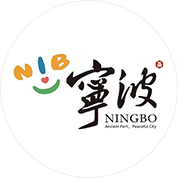
(Photo by chinadaily.com.cn)
Rooted in the soil of traditional Chinese family culture yet infused with the wisdom of his philosophy of mind, Wang Yangming’s perspective on the family reveals unique intellectual depth and practical relevance.
To Wang Yangming, the cohesion of a family relies not only on blood ties but also on the bond of benevolence. He believed that ancestors inherently wished for their descendants to thrive in peace and prosperity, and that later generations, by recognising this original intent and cherishing their shared roots, could support one another like siblings. However, familial love was not an end in itself but rather a starting point for broader moral expansion, leading to his concept of "the unity of all things through benevolence" (ren). Just as a tree grows from a sprout, the love between father and son or among brothers is the germination of ren, which then extends naturally to encompass all things. This differs from the Mohist notion of "universal love" (jian’ai), which lacks gradation and transcends mere familial bonds, allowing benevolence to expand organically within a structured ethical order.
The continuity of a family, moreover, must be built upon "sincere self-cultivation and virtuous conduct" (cheng shen li de), which shapes its legacy. Wang emphasised that the essence of family history lies not in boastful records but in the genuine traces of moral refinement. He criticised descendants who exaggerated ancestral achievements for vanity, arguing that both "abandoning one’s ancestors" and "falsifying their legacy" harm familial history. True reverence for ancestors, he held, lies in later generations embodying their teachings through self-cultivation. His own family exemplified this: six generations of disciplined moral practice, from his great-great-grandfather to his grandfather, cultivated talents like his father's and himself. This historical consciousness, centred on self-cultivation, transforms family tradition into fertile ground for individual growth.
Today, though traditional extended families have waned with changing times, Wang Yangming’s insights remain relevant. Nuclear families must nurture their moral heritage, while modern communities also require similar bonds of unity. Cultivating benevolence through familial affection and participating in history through ethical self-discipline—this wisdom remains vital nourishment for building a harmonious, greater Chinese society.
Source: www.cnnb.com.cn
Editors: Ye Ke, Feng Kejie (intern)



